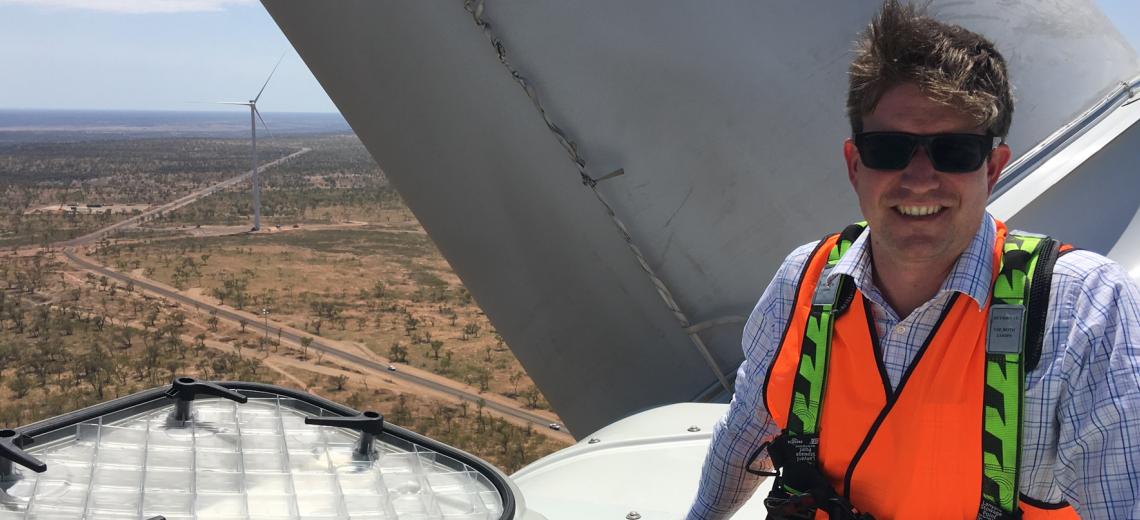
7 minute read
ANU College of Business and Economics (CBE) alumnus Rob Fisher is the Chief Financial and Operating Officer at Windlab, an international developer of wind farms headquartered in Canberra. He has been raising corporate and project finance to build the company’s global greenfield portfolio, and is also managing the construction and operations of its wind assets. Before Windlab, Rob worked in project finance as an Australian Securities Exchange-listed property developer, as well as in corporate finance within a number of fast-growing software companies in Australia and the United States.
In this interview, Rob discusses his role in an organisation geared towards renewable energy and the value he gained from his CBE degree.
Q. Can you tell us about your career path and what led you to the role you're in today?
I was lucky to work part-time in a tax firm while I was an undergraduate. I used this experience to join Ernst & Young during my Chartered Accountancy program. I have always been interested in fast-growing companies and jumped at the chance to join a Canberra software company in the early stages of its growth, which then evolved into a NASDAQ-listed entity headquartered in Silicon Valley. Like many Canberrans, my wife and I chose to come back here to bring up our family, and after a short stint with another tech company, I landed a project finance role with a Canberra-based residential property developer. This position involved modelling projects across the country, business planning and helping to arrange financing. Four years later, Windlab advertised for a Chief Financial Officer (CFO) with technology and project-finance experience, and I have been here ever since.
Q. Can you shed some light on the role of a Chief Finance and Operating Officer in an organisation geared towards renewable energy?
I wear a lot of hats. As CFO, I oversee all the traditional accounting and compliance functions, which are carried out by a very capable team of accountants. I also lead our financing activities, raising money at a corporate level and arranging the funding to build our projects. This means working closely with our development team and the scientists and engineers involved in project design. It requires me to get my head around a lot of things I am not really trained for as an accountant – from wind shear to construction contracts and wake losses to concrete foundation design. This makes the work quite challenging but enjoyable, and certainly diverse from one day to the next. My role as Chief Operating Officer is more about running our construction and operating assets. Again, this requires quite a range of skills – negotiation, corporate governance, and relationship management with partners, governments and landowners.
Running a business in the midst of a global energy transition and a pandemic certainly brings plenty of lessons from history to mind.
Q. From your experience, is there a particular leadership style that has proven to be most effective in navigating organisations in your industry through COVID-19?
Through my observation, almost no one was prepared for the pandemic, and few people have any experience of such a disruption, at least in Australia. It was, and remains, a rapidly changing, unfamiliar, and complex situation. I found it very useful to talk to other leaders and managers, both in the company and through my wider network. Sharing ideas, thoughts, and experiences helped refine my thinking and shape our response. Even across industries, the experience of dealing with a massive unknown and mentally working through worst-case scenarios was the same, and being able to share that experience was very helpful both for the business and personally.
Q. How did your degree at CBE prepare you for your career?
I didn’t just study accounting or finance, though that is ultimately what got me a job. My economics degree was pretty heavily weighted towards economic history, which is a great way to learn about business and particularly about disruptive technologies. Running a business in the midst of a global energy transition and a pandemic certainly brings plenty of lessons from history to mind.
The ANU College of Business and Economics offers an extensive range of specialised programs. Click here for more details.
